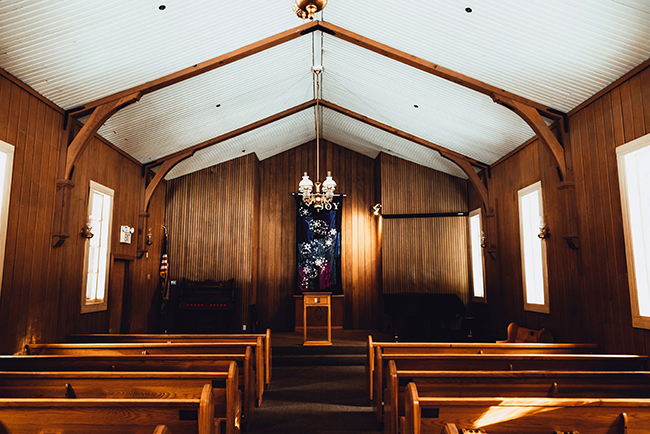
When small churches keep it simple and focus on the basics, they can foster a small-group mindset in their church.
By Jennifer Matenaer
The fellowship of believers is essential for the spiritual growth of individual believers and the church as a whole. According to Scott McConnell, executive director of Lifeway Research, “Our transformation and our worship occur best together with other believers.” God designed our relationship with Him to grow in the context of corporate worship. One method for churches to achieve this relational reality is through small groups. Small group ministry is a practical way for churches today to practice being together in addition to the weekly worship gathering.
Unfortunately, a growing number of churches struggle with small group ministry. The churches that struggle the most? Small churches. This is due to a lack of participation and a lack of resources.
The small church challenge
According to a recent study by Lifeway Research, 39% of the smallest churches (fewer than 50 attendees) state that less than 25% of their church is involved in small groups. This means fewer than 15 people attend small groups at these churches. Additionally, only 21% of the smallest churches have 50–74% of their church involved in small groups.
2 in 5 churches with fewer than 50 attendees say less than 25% of their church is involved in small groups. Click To TweetIn addition to a lack of involvement, a lack of resources can also make it challenging for small churches to have a small group ministry. The 2020 Faith Communities Today study reported some of the advantages and disadvantages small churches face. Because a minimal amount of the small church’s budget typically goes toward staffing, these church leaders are more likely to be volunteers or bi-vocational. A part-time pastor already doing sermon preparation and member care will not likely have time to start up and lead a small group program. And with other volunteers often already stretched thin with children’s ministry, music, or other Sunday morning involvement, it can be hard to find anyone to help with this ministry.
With smaller churches becoming the norm rather than the exception, many churches have faced or will face this struggle. And the reality for many of these churches may be that it is not possible to have a regular small group ministry. So how can pastors of small churches create a small group culture among their members? Pastors can incorporate aspects of small group culture by simply adjusting or adding to their current ministries, without starting a new ministry from scratch.
Simple
When small churches keep it simple and focus on the basics, they can foster a small-group mindset in their church. According to research by Lifeway Research, Bible study and prayer top the list of important small group activities. Most churches have some form of prayer and Bible study already happening on a regular basis. But maybe small churches can do them in a more communal way. Some examples of this include a group prayer time before, during, or after the Sunday service or a reflection time after the service to discuss or ask questions about the sermon.
Sustainable
Although a small church may be able to muster the excitement and energy needed to start a new small group ministry, can that church also maintain the new ministry? When former participants were asked the reasons they left their small group, the second highest reason they gave was that the class ended (36%). When a church starts a ministry it cannot maintain, participants take the automatic “off-ramp.” Instead of starting a new ministry that would likely end soon, pastors could begin by adding extra communal aspects to preexisting ministries, such as sharing prayer requests, inviting parents to stay for the lesson during the evening children’s program, or sharing a meal after the Sunday service.
Sustainability also means considering the time constraints of your congregants. The top two reasons non-attendees aren’t involved in a small group are related to time conflicts: “I am busy with personal responsibilities when the groups are offered” (28%) and “the groups meet at an inconvenient time” (19%).
The two most common reasons people aren't involved in a small group are related to time: “I am busy with personal responsibilities when the groups are offered” (28%) and “the groups meet at an inconvenient time” (19%). Click To TweetChurches with limited resources and fewer people will feel the weight of this struggle even more. This adds more value to tacking on an activity to a preexisting ministry. Adding an extra 30 minutes before or after a Sunday morning service means much less inconvenience or conflicts for church members. Another option may be an activity rotation throughout the month. For example, on the first Sunday of the month, there could be a shared meal after the service, and on the third Sunday, a prayer meeting before the service. Or a prayer breakfast on the second Saturday and a time of singing after the evening meeting on the fourth Wednesday. It will be impossible to remove all conflicts, but members will recognize and appreciate leaders making an effort to reach different people in different seasons of life.
Livable and replicable
Church fellowship was never designed to be only a Sunday morning activity—or even a Sunday morning, Sunday night, and Wednesday night activity. It was meant to be an everyday activity—a daily act of living out one’s faith. Small group programs and ministries can certainly help churches take a step closer to living in community. But small groups are not a guarantee—and certainly not a necessity—to meet this end.
“When the flock sees the shepherd living out a small group mindset, they will likely want to do the same.” — Jennifer Matenaer Click To TweetWhat matters is what’s behind the methods: the lifestyle. Fellowship with other believers comes through living life with other believers—inviting the new family over for dinner, visiting shut-ins, attending kids’ basketball games. When the flock sees the shepherd living out a small group mindset, they will likely want to do the same. The small group mentality also steps outside of the church when the pews are empty and the circle of chairs has been put away. And it’s a mentality that church members will want to imitate. A small church may not be able to have a week-to-week small group. But that church can still live out a small group mindset, growing together in relationship with God.
For permission to republish this article, contact Marissa Postell Sullivan.

Jennifer Matenaer
Jennifer Matenaer is a graduate of Dallas Theological Seminary and serves as a missionary in a small church in rural Iowa along with her husband. Read more from her at JenniferMatenaer.com.












